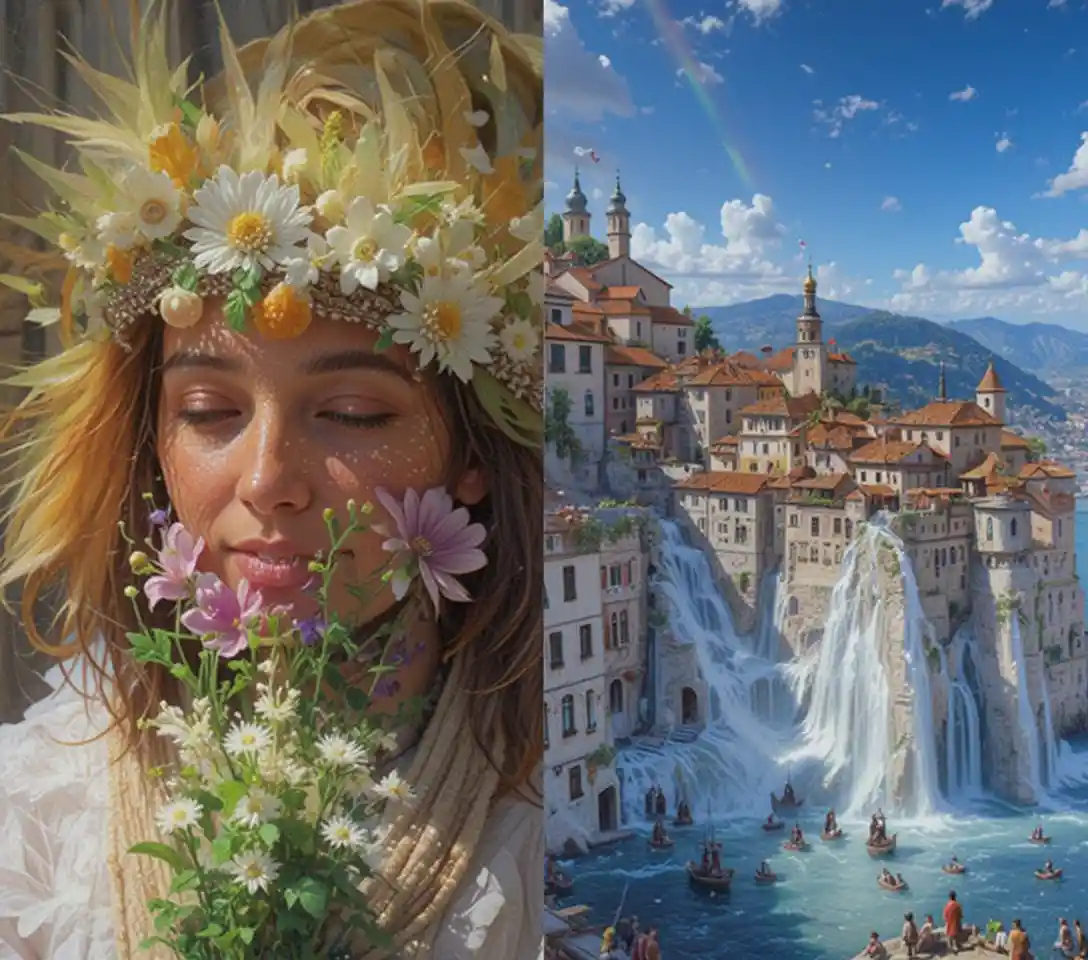Step Into the Story of Europe Through Its Festivals
Imagine yourself in a cobblestone square, lanterns flickering above, music spilling from every corner, and the aroma of something delicious calling your name. That’s not a fantasy it’s the soul of Europe speaking to you through its festivals. From ancient traditions to modern music marathons, cultural festivals in Europe offer more than entertainment they give you a deeper understanding of history, community, and joy.
If you’re planning your next adventure and want something more authentic than selfies and sightseeing, you’re in the right place. Let’s walk through the heart of Europe, one unforgettable celebration at a time.
Why You Should Travel for Cultural Festivals in Europe

You don’t just witness these festivals—you become part of them. Whether you’re dancing with strangers in Spain or tasting truffles in Italy, each event offers:
- A deeper cultural connection
- Authentic food, music, and traditions
- Opportunities to explore places off the tourist trail
- Interactions with locals who are proud to share their heritage
And guess what? These experiences often become the highlight of your entire trip.
Spring Festivals: Bloom Into the Season
Feria de Abril – Seville, Spain
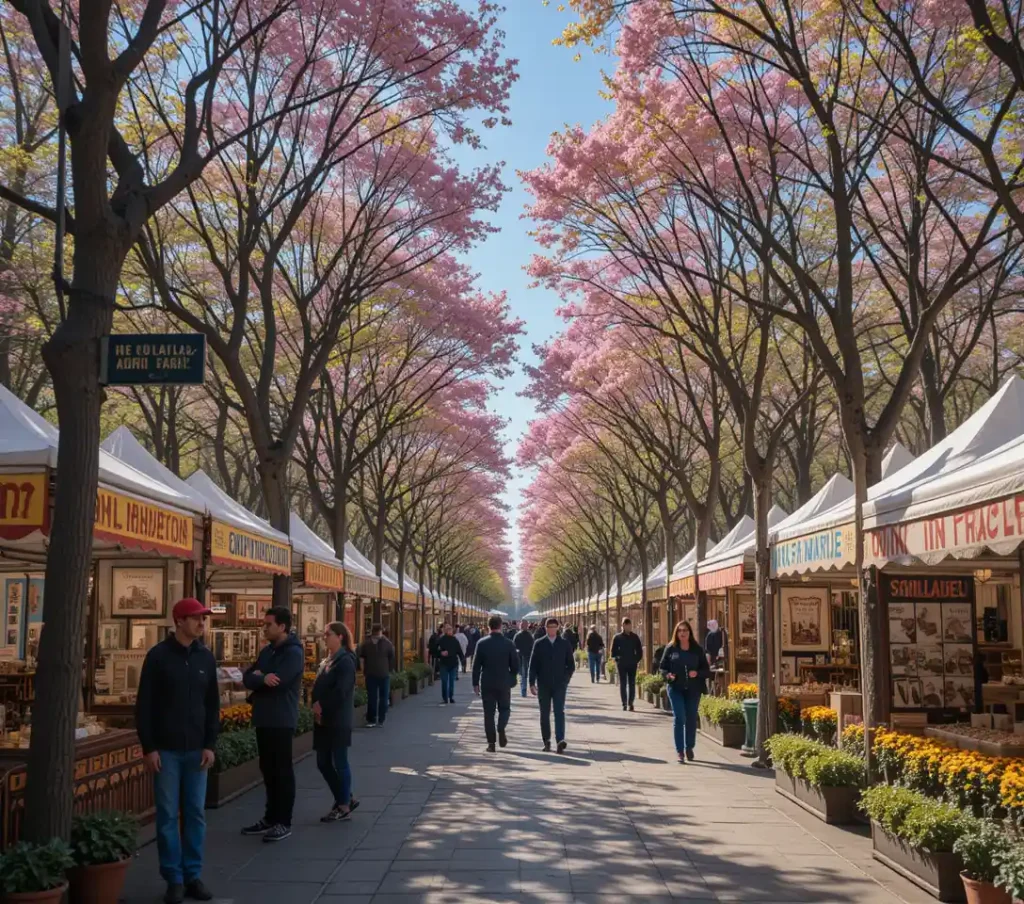
This festival arrives just after Easter and transforms Seville into a full-blown spectacle. You’ll see thousands of locals in traditional flamenco dress, singing, dancing, and riding horses in parades. Each family sets up a private “caseta” (tent), but don’t worry—many are open to the public too.
What You Can’t Miss:
- Daily horse parades
- Nighttime flamenco shows
- Tapas and rebujito (sherry with soda)
Tulip Festival – Lisse, Netherlands

Visiting Keukenhof Gardens in April is like walking through a living painting. With over 800 varieties of tulips, you’re looking at a once-a-year spectacle that screams spring.
Pro Tip: Rent a bike and explore the flower fields beyond the gardens for a quieter, more local experience.
Summer Festivals: Dance, Laugh, and Feast Under the Sun
La Tomatina – Buñol, Spain
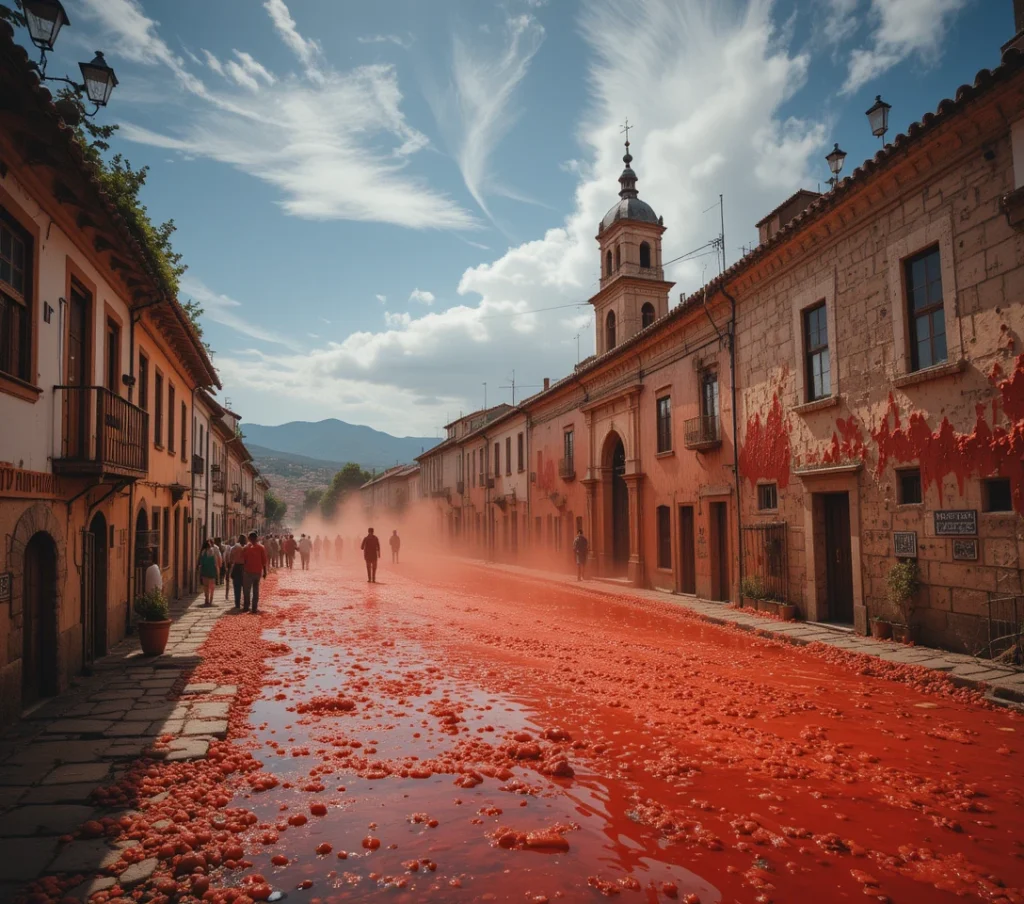
You’re going to get messy. Really messy. But that’s the whole point. Held in August, La Tomatina is the world’s largest tomato fight. It’s silly, chaotic, and surprisingly fun.
What You Need:
- Goggles
- Clothes you’ll never wear again
- A good sense of humor
Edinburgh Fringe Festival – Scotland

If you love art in every form, the Fringe is your playground. You can catch hundreds of shows a day—from stand-up comedy to street performances and immersive theatre.
Don’t Miss: The Royal Mile, where the street performers gather and magic happens non-stop.
Montreux Jazz Festival – Switzerland
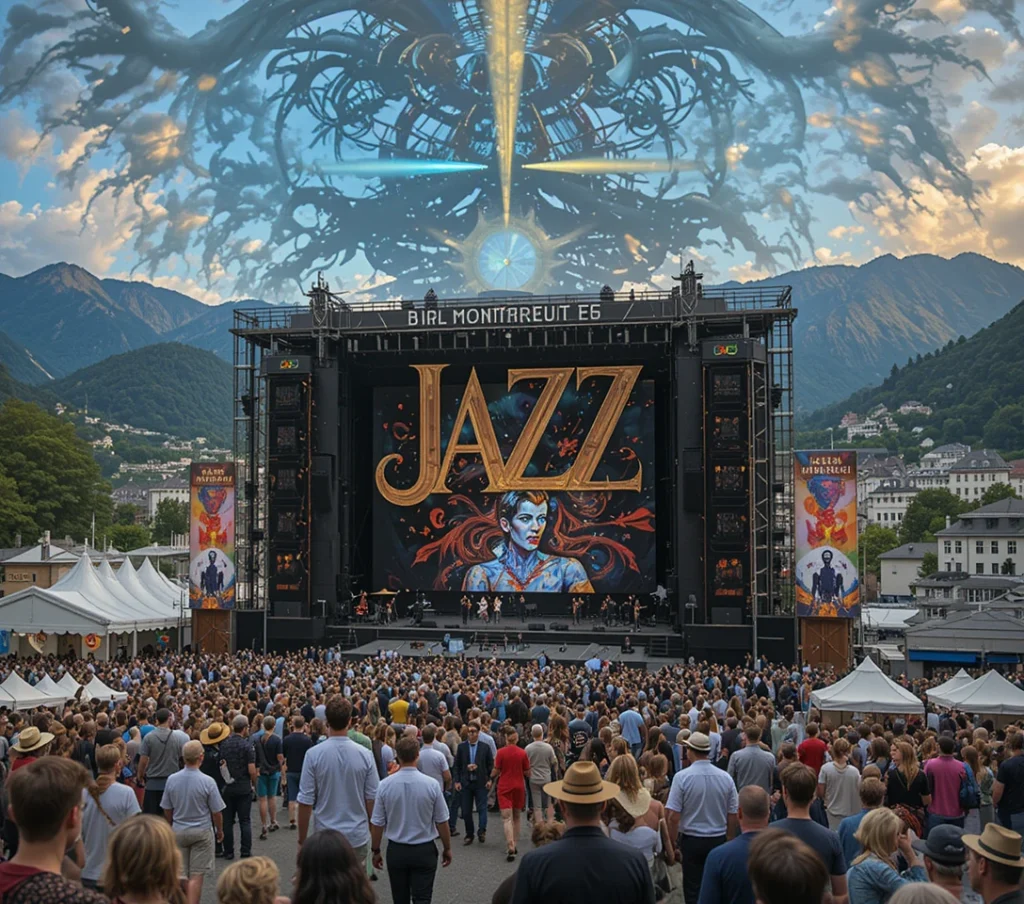
Held on the shores of Lake Geneva, this July event isn’t just for jazz lovers. Rock, soul, and electronic artists all share the stage.
Best Tip: Bring a blanket and enjoy the free lakeside performances.
Fall Festivals: Celebrate the Harvest and Heritage
Oktoberfest – Munich, Germany

Even if you’re not a beer drinker, Oktoberfest is a must-see. It’s about more than pints—it’s about culture. Picture giant tents filled with music, dancing on benches, and delicious food.
What to Try:
- Schweinshaxe (pork knuckle)
- Brez’n (pretzel)
- Weissbier (wheat beer)
Truffle Festival – Alba, Italy

If food is your love language, Alba in October is where you need to be. The white truffle is celebrated with tastings, markets, and wine pairings.
Insider Tip: Join a truffle-hunting tour with a trained dog.
Winter Festivals: Magic in the Cold
Strasbourg Christmas Market – France
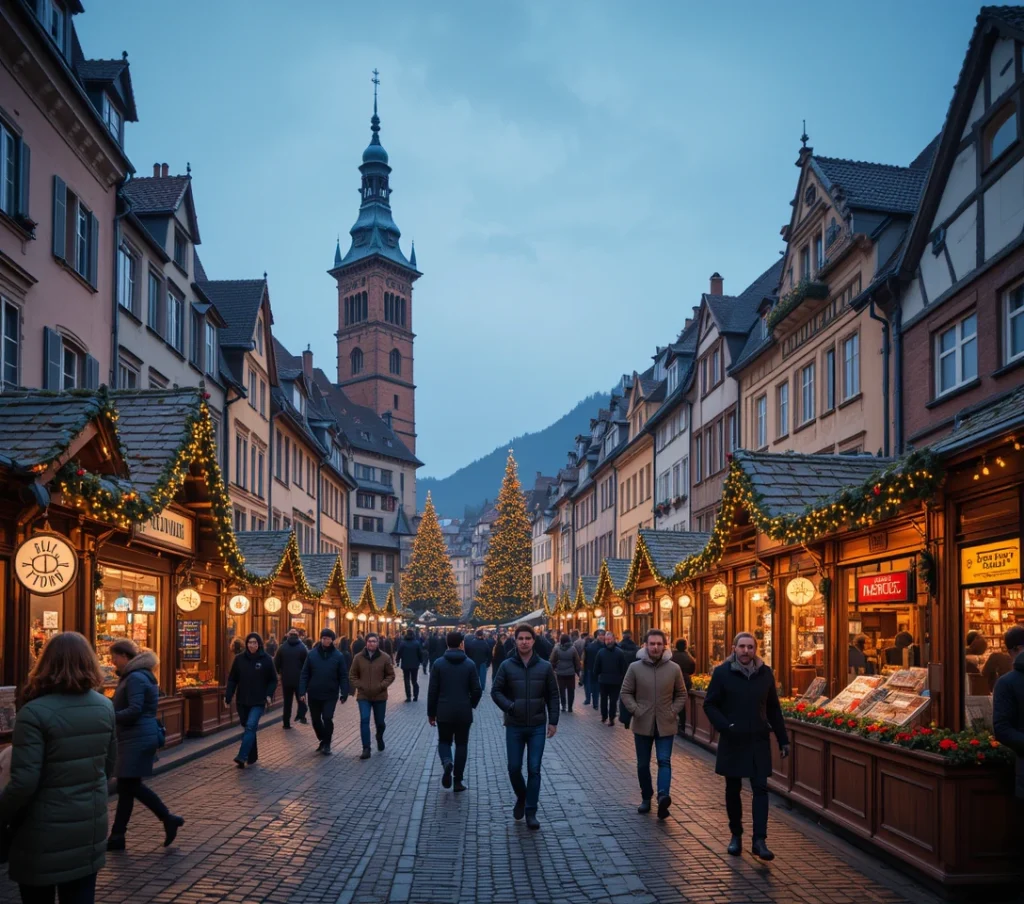
The scent of cinnamon and mulled wine wraps around you like a warm scarf. This is Europe’s oldest Christmas market, and it’s magical.
What You’ll Love:
- Handmade ornaments
- Spiced treats
- Fairy-tale streets
Hogmanay – Edinburgh, Scotland
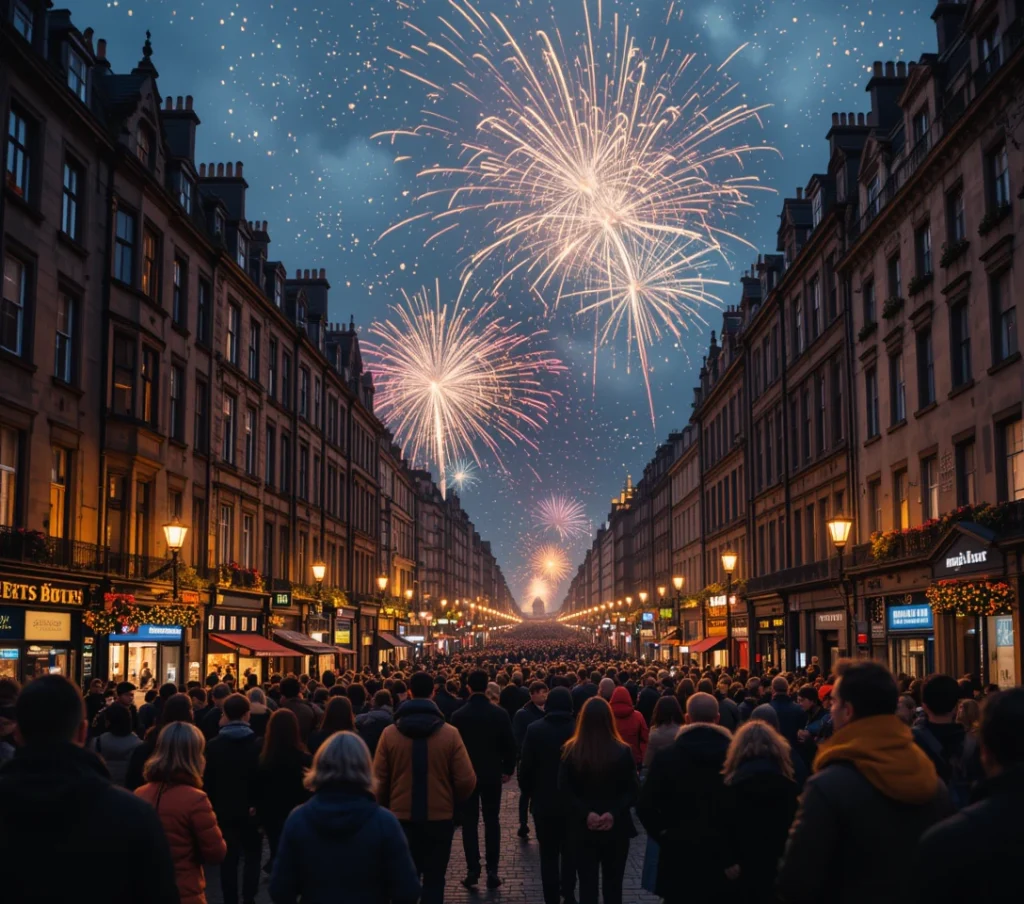
New Year’s Eve here isn’t just fireworks—it’s a cultural deep dive. From the torchlight procession to the Loony Dook (a cold swim in the Firth of Forth), Hogmanay is unforgettable.
Spiritual and Religious Celebrations
Semana Santa – Spain
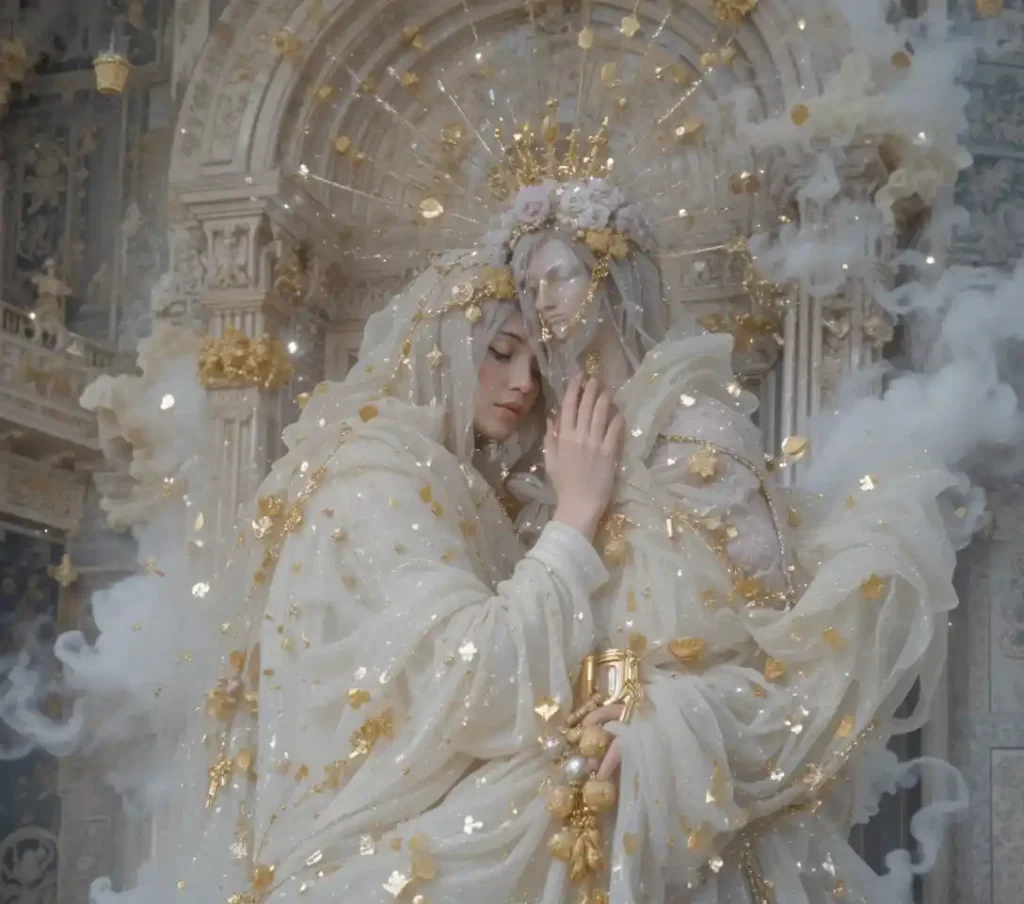
This Holy Week celebration isn’t flashy—it’s soulful. In cities like Seville and Málaga, processions with floats, candles, and choirs fill the streets with reverence.
When to Go: The week before Easter
What to Know: It’s deeply religious—dress respectfully
Orthodox Easter – Greece, Romania, Serbia
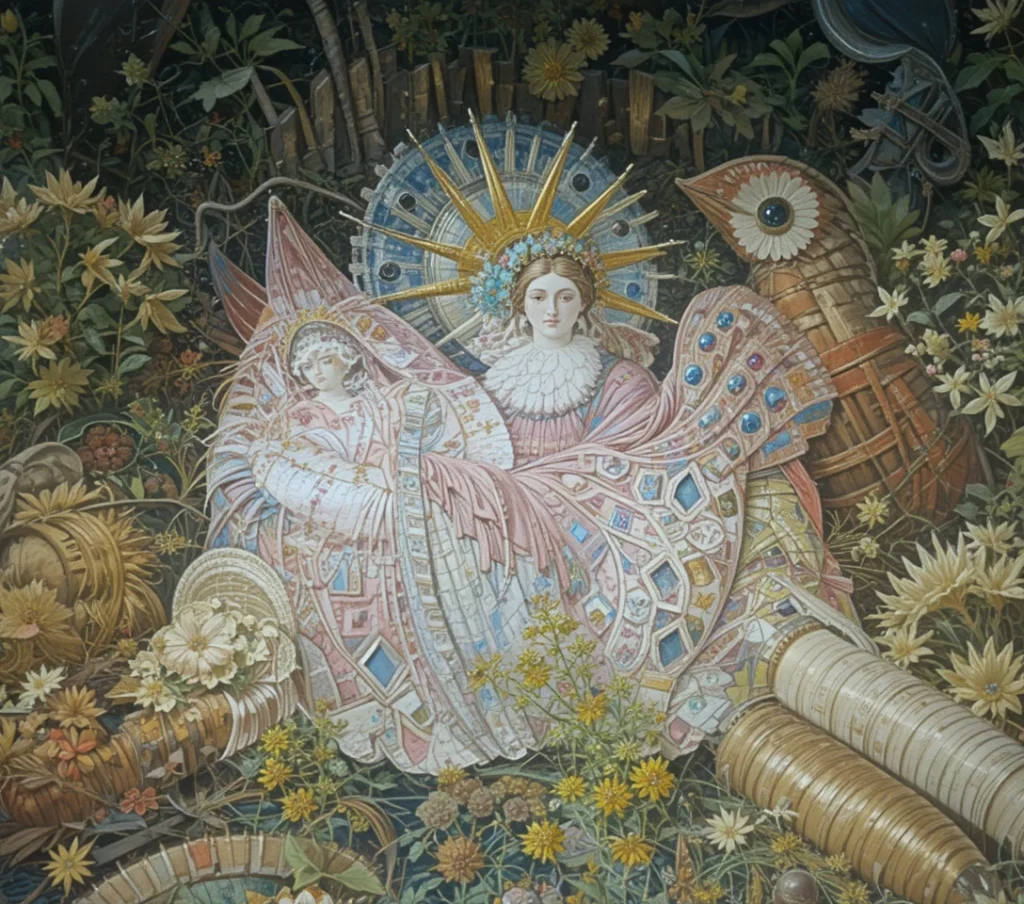
These countries observe Easter with centuries-old traditions. From midnight fireworks to lamb feasts and red egg cracking, the symbolism runs deep.
Europe’s Most Beloved Food Festivals
You haven’t truly tasted Europe until you’ve experienced its festivals through food.
Galway Oyster Festival – Ireland
Seafood lovers, rejoice. In September, Galway hosts this legendary event with oyster-shucking contests, seafood tastings, and sea shanties.
Chestnut Festivals – Italy and France
Chestnuts were once the bread of the poor. Today, they’re the star of cozy autumn festivals where you’ll find everything from chestnut soup to desserts like castagnaccio.
Dance and Music That Moves the Soul
Tomorrowland – Belgium
More than a music festival, this is a fantasy realm powered by EDM and creativity. If you’re into electronic music, this is your bucket-list stop.
Booking Tip: Tickets sell out fast—sign up for the pre-sale alerts.
Roskilde Festival – Denmark
It’s Europe’s most ethical festival. All profits go to charity, and the lineup is killer—from Beyoncé to Metallica. The vibe is inclusive, artistic, and progressive.
Tradition Meets Storytelling in Europe’s Quirkiest Festivals
Carnival of Venice – Italy
Every February, Venice takes a trip back in time. You’ll walk beside masked nobles and gondoliers while sipping espresso on cobbled bridges.
Up Helly Aa – Shetland, Scotland
A Viking fire festival where you can literally watch a replica longship go up in flames. It’s history, spectacle, and celebration rolled into one.
Cheese-Rolling at Cooper’s Hill – England
Chasing a wheel of cheese down a steep hill might sound mad—and it is. But it’s also wildly entertaining and deeply British.
Tips to Experience These Festivals Like a Pro
- Book early: Some festivals, like Tomorrowland or Oktoberfest, require reservations months in advance.
- Blend in: Learn a few local phrases. Locals appreciate the effort.
- Pack smart: Many festivals happen outdoors. Think comfort and weather-proof.
- Respect traditions: Understand the customs, especially during religious or sacred events.
- Go local: Skip the tourist booths and eat where the locals eat.
Conclusion: Make Europe’s Festivals Your New Tradition
If you’re still asking yourself whether cultural festivals in Europe are worth planning a trip around, the answer is simple—yes. These aren’t just parties. They’re portals into a deeper understanding of the places you visit. You’ll leave with more than just photos—you’ll carry stories, connections, and maybe a bit of glitter in your shoes.
So, what are you waiting for? Circle the dates on your calendar and let your next journey begin with the beat of a drum, the flash of a firework, or the swirl of a flamenco dress.
Call-to-Action
Ready to map out your European festival tour? Start by picking the season that excites you most, research a few must-see events, and book your first ticket. Need help planning your trip or choosing which festivals match your vibe? Drop your questions in the comments, or share your own festival stories—we’d love to hear from you!
FAQs About Cultural Festivals in Europe
1. What are the top cultural festivals in Europe worth visiting?
Oktoberfest, Edinburgh Fringe, La Tomatina, Venice Carnival, and Tomorrowland consistently rank among the best, each offering a unique cultural lens.
2. How do I find the dates of these festivals?
Most festivals have official websites. Plan early, especially for big events like Tomorrowland or Oktoberfest, which release schedules months in advance.
3. Are European festivals safe for solo travelers?
Absolutely. Festivals often have strong community vibes. Just stay aware, use common sense, and follow local guidance.
4. Do I need to dress up for these festivals?
It depends. Some, like Venice Carnival, encourage costumes. Others are casual but themed—so wearing traditional attire can enhance your experience.
5. What’s the best way to get around Europe for festivals?
Trains are your best friend. Consider a Eurail pass if you’re hitting multiple countries. For shorter hops, budget airlines like Ryanair or EasyJet work well.

